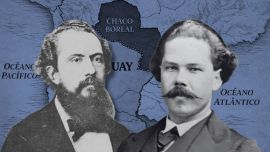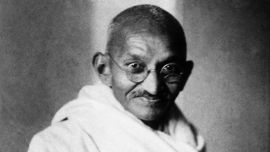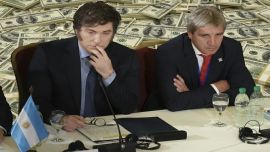Picture two candidates.
The first was born to a dirt-poor family of rubber tappers in a remote corner of the Amazon. During her youth, she survived five bouts of malaria, hepatitis and leishmaniasis. She was illiterate until the age of 16, when she decided to move to the city, to learn to read and write. Two years later, she was at university, getting a degree in history.
She became a teacher, and dedicated her spare time to social and environmental causes. She led human chains of unarmed demonstrators who faced down heavily armed land-grabbers intent on cutting down the rainforest. She saw friends and mentors shot dead, but she never gave up.
She was voted a city councilwoman, then a state representative and in 1995 became Brazil’s youngest ever senator. She introduced bills to protect traditional and indigenous populations, extend maternity leave, toughen the penalties for child abuse and to strengthen popular participation in law-making and budgetary supervision, among others achievements.
In 2003, she was named to the national government as environment minister. Over the next five years, she faced down agribusiness firms, lumber companies and international mining conglomerates and managed to cut the rate of deforestation in Brazil by half. She won international awards for this, and set in motion negotiations to establish an international fund to support conservation in the Amazon, which bore fruit in 2009.
She ran for president in 2010, and won 19 million votes, falling just short of the tally needed to make the run-off. In 2014, she ran again and took 23 million votes – but she fell short again. Around that time, a huge corruption scandal exploded, implicating over 1,800 politicians. She was not among them. In fact, she renounced the benefits to which she was entitled as a former senator.
In between these electoral campaigns, she focused on her regular job as a university professor and continued her environmental activism, all the while building her own political party from the ground up.
She’s running again in 2018, with a campaign focused on balancing social policy and fiscal responsibility, a commitment to the environment and a rejection of extremes. Her team includes an economist who helped to stop hyperinflation in the 1990s, an economist who created a programme that took millions out of poverty in the 2000s and a doctor who created the country’s universal healthcare system.
Contrast and compare
The second candidate was born to a middle-class family in a big city in Brazil. He attended military school and then entered a military academy, training as a parachutist and achieving a degree in physical education. He made the rank of captain. This was all during the time in which the country was living under a military dictatorship.
Once democracy was re-established, he demonstrated in favour of raising soldiers’ salaries – he was jailed for 15 days for insubordination. The next year, as a pay raise was being negotiated, he allegedly developed a plan to plant bombs in several military bases if the raise was considered insufficient. The plan was discovered and although he was absolved, he was forced into the Army’s reserves.
He entered politics, serving an essentially military constituency. In 1991, he was elected to the House of Representatives, and has since served seven consecutive terms. During this time, he was able to approve only two bills, but yet became famous for his racist, misogynist, homophobic, xenophobic and authoritarian discourse.
He has repeatedly praised a colonel who is infamous for running a centre where over 500 prisoners were tortured. Forty people died in custody there during the dictatorship.
He saw three of his children and a brother into politics, and all have seen their wealth explode during this time, although there have been no formal accusations of corruption.
Riding the conservative wave and the discontent wrought by an economic crisis, he decided to run for president in 2018. He chose a retired general to be his vice-president, and his campaign promises to put generals in charge of ministries, to eliminate gun control, and put an end policies that favour minorities.
He admits to knowing nothing about economics and picked an orthodox liberal economist advisor, but publicly contradicts all of this professional’s advice, sowing uncertainty about the policies he actually intends to implement.
The country is Brazil. The first candidate is Marina Silva. The second is Jair Bolsonaro.
Guess who’s leading the polls?

























Comments